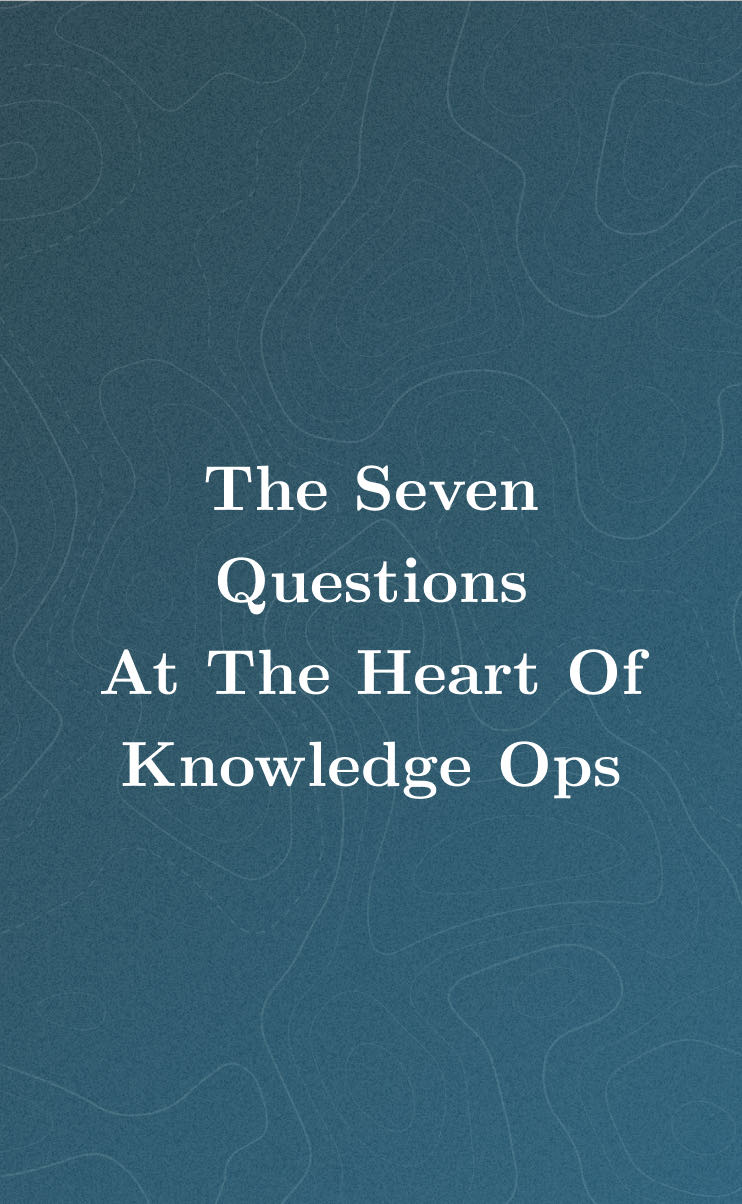Knowledge Ops
The Seven Questions At The Heart Of Knowledge Ops
Personal Knowledge Management is too restrictive – you want to think about all seven of these questions instead.

I've written previously about my problems with the term Personal Knowledge Management – I find it too static, too "administrative" and not encompassing enough for what I perceive to be the actual problem: making sense of, navigating, and influencing the world.
The term I prefer is Knowledge Ops, influenced by the term DevOps in IT. To me, this term focuses more on the process from start to finish, and captures the dynamic nature better. But what does that mean exactly?
The way I think about Knowledge Ops right now is as a roof over seven different questions related to the pursuit of understanding, navigating, and influencing the world.
Seven Questions
First: How do we create knowledge? What are the practices we can employ to understand better what is?
Second: How do we gather knowledge? Luckily, we don't have to create all knowledge from scratch all the time, we can rely on the work of others as well. But how do we collect that knowledge? How do we search for it, how do we filter what we find?
Third: How do we store knowledge? As individuals, internally (memory), and externally (writing it down).
Fourth: How do we retrieve knowledge? Remembering, searching databases?
Fifth: How do we link knowledge? What we know does not exist in isolation – it has context that is important, and individual facts need to link together to create insight.
Sixth: How do we apply knowledge? Decision making, problem solving, thinking...how do we do this better?
Seventh: How do we update our knowledge when new information comes to light? How do we do that individually, and how do we propagate updates through organizations?
Understanding this chain of questions, both individually as well as at their intersections, is what Knowledge Ops tries to do. It is, at this point in time, more of a research program than an established set of solutions or even advice.
But, true to the second question above, most of that is a question of gathering knowledge, since I'm most certainly not the first person to think about any of these questions. Which also means: if you have reading for me, let me know!
Related Topics
Join the Cortex Futura Newsletter
Subscribe below to receive free weekly emails with my best new content, or follow me on Twitter or YouTube.
Join and receive my best ideas on productivity, learning, and Knowledge Ops
